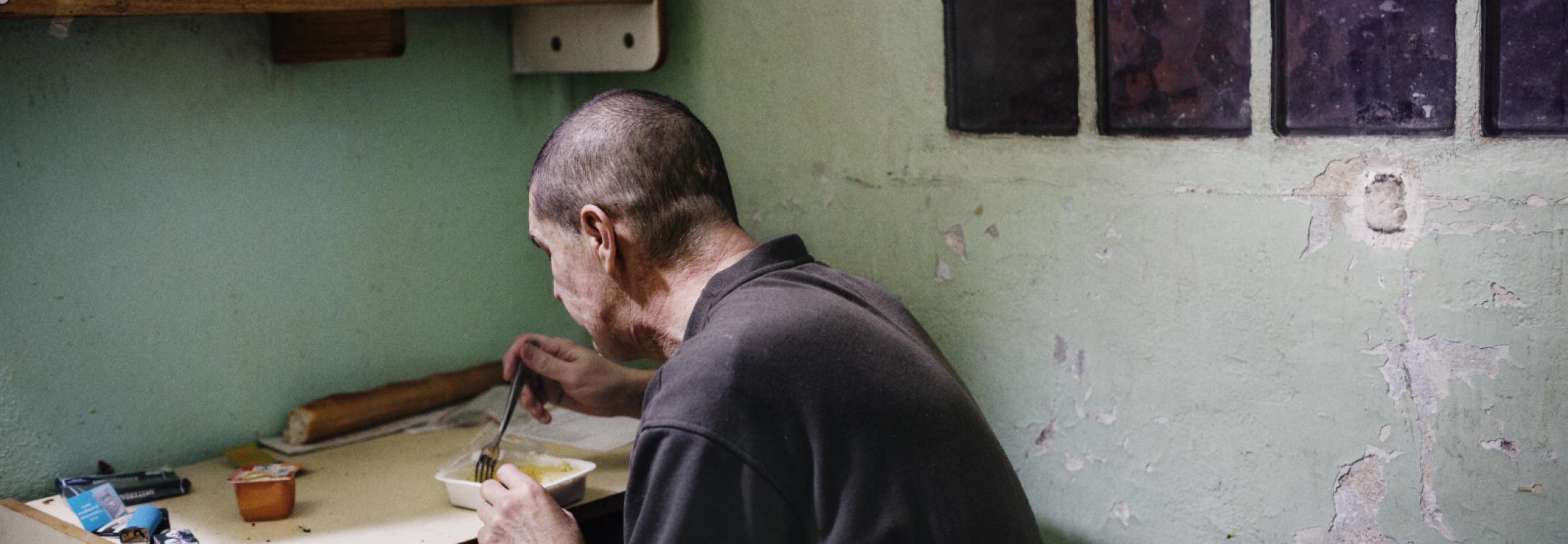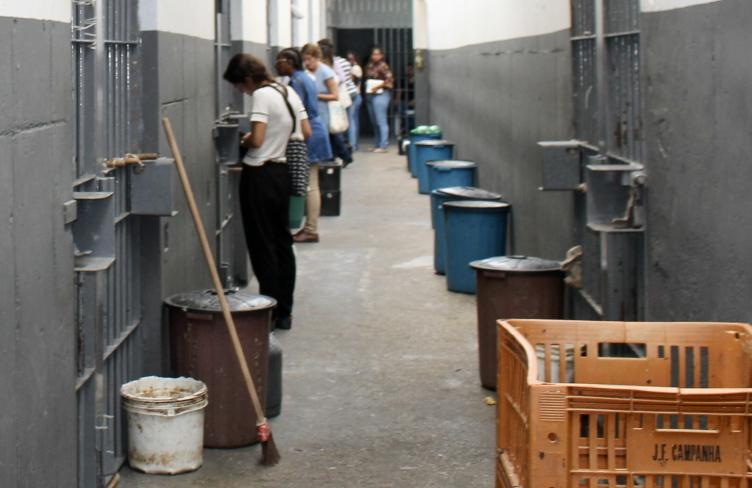
Given that the population is ageing in western countries, it is almost normal that this is also the case in our prisons. More elderly people in the population also means more elderly prisoners behind bars: the correlation could not be more logical. But logic alone is not sufficient to address the issue of old age in prisons.
Recent events have projected this often painful and somewhat ignored issue into rather disturbingly sharp focus. On April 24, the Court of Criminal Appeal of the Canton of Geneva overturned a decision by the Tribunal of First Instance to release the oldest known prisoner in Switzerland before his sentence had expired. This 89-year-old prisoner suffers from dementia and receives palliative treatment to ease pain linked to his cancer condition in a cell unit at Geneva University Hospital.
The offending man is not an angel, far from it. He was sentenced to 10 years’ imprisonment in 2010 for the rape of his adopted daughter. Nobody contests that the sentence for this crime is justified. However, one can be surprised at the persistence of the prosecutor in wanting to keep behind bars a man who - in all likelihood - is no longer capable of harming anyone.
Unless the case is brought before the Federal Court, this almost 90-year-old man, considered dangerous to the community despite his moribund state, is therefore condemned to die in a hospital cell. From the victim's point of view, does knowing that her aggressor has died behind bars offer "more justice"? It can be questioned.
Humanity must prevail?
This particular case provides food for thought around a thorny question: At what point is a court sentence detrimental to the dignity of a very old and sick prisoner? Are his/her rights not being violated in regard to the jurisprudence of the European Court of Human Rights under which such detention may be viewed as being cruel, inhuman or degrading treatment? The former French Justice Minister and President of the French Constitutional Council, Robert Badinter, was very clear: "Humanity must prevail over the crime". This still famous phrase was made in the context of the trial of Maurice Papon, a former senior French official during the German occupation who was convicted in 1998 and sentenced to ten years’ imprisonment. Released for health reasons, he finally died in house arrest in 2007.
The case provoked a legitimate uproar. How can one liberate a person convicted for his role in one of the worst crimes possible, namely crimes against humanity, simply on the grounds that he is harmless and bedridden? How can humanity be invoked in favour of a person who has voluntarily annihilated others? The questions are legitimate. But beyond the emotional feelings such cases may arouse, a system of justice worthy of the name should be free from any inclination towards a fierce desire and willingness to punish beyond the appropriate sentence under law. Justice in a country governed under the rule of law must always be combined with the imperative requirement to ensure respect for human dignity.
In September 2012, a conference organised by the Paulus Akademie in Zürich brought together 60 professionals and experts around the theme "Ageing and death in custody". The questions very soon outnumbered the answers: How can we cope with the increasing number of ageing inmates? Should these prisoners, male and female, be held in separate quarters or should inter-generational contact between inmates be favoured? Why are prisoners in Switzerland obliged to work beyond the legal retirement age? Does one age more rapidly behind prison bars? … Questions that challenge the very foundations of our society, in which more and more people are being sent to prison.
According to a study by two Swiss scholars, published in 2011, the number of prisoners over 60 years old doubled in the the country between 1984 and 2008. Even more impressive, according to projections made by the American Civil Liberties Union, the prison population aged over 50 in the United States will have increased by 4'400% (!) to 400'000 people between 1981 and 2030. Whatever the numbers and what they reveal, the issue of how, in the near future, our societies will manage and supervise old and extremely old prisoners will become ever more acute. Will we tolerate a situation in which human beings, regardless of the crimes they have committed, end their lives behind bars without recovering their dignity before they draw their last breath? The question deserves to be asked.


